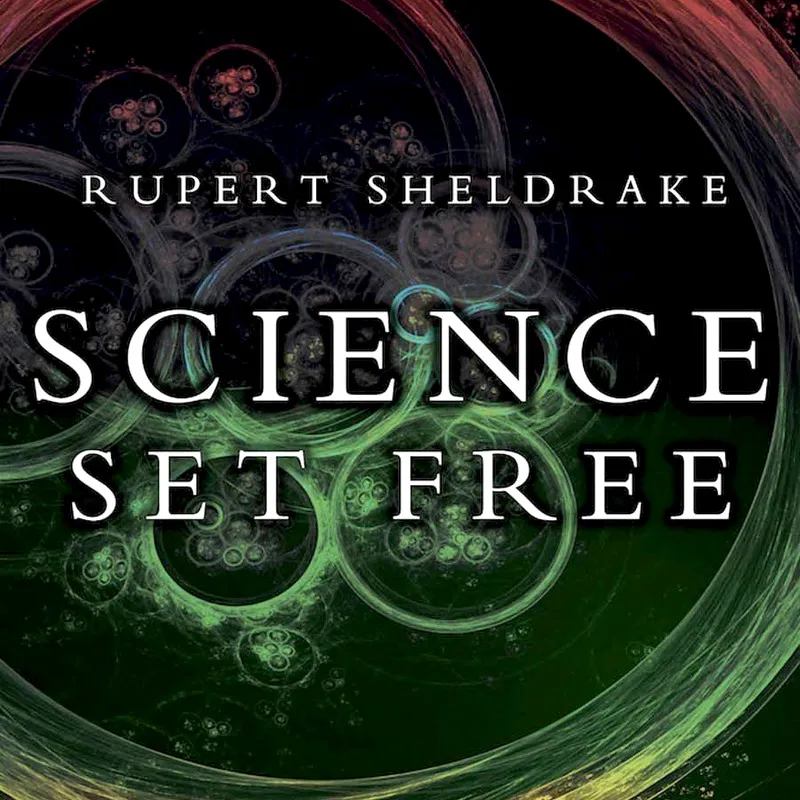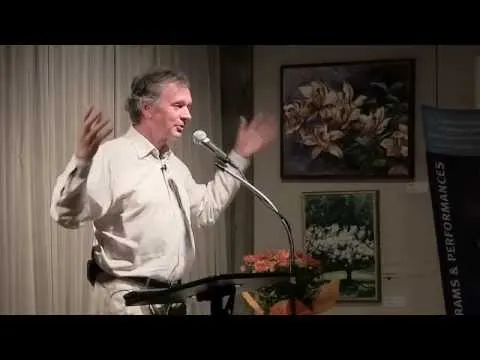Ever since I joined Steemit in late 2017 sharing this mindblowing lecture has been on my mind. I decided to ramp it up slowly and to relay my odd journey of discovery to you bit by bit, until I would feel it is time to share some of the more explosive discoveries that had eventually led me to question my entire paradigm and consecutively classify it in my mind as "unanimously-popular but in light of the evidence: highly unlikely".
After some transcendent experiences, my own decade of research and eventually finding this lecture I suddenly saw myself forced to question my entire worldview from the ground up, a worldview that was and still is - for all intents and purposes - the most commonly held reality-narrative in Western societies by default:

Questioning the most established notions of contemporary science had never seemed important to me. If anything it seemed like a waste of time - I figured my time would be better spend looking into more promising discrepancies than I thought could ever exist at the fundamental level of the modern science, which had always seemed certain and solid to me from a rational standpoint.
Because everyone seemed to agree that modern science is based on evidence and rational scientific inquiry, I had simply believed it to be so until I eventually conceded that that statement is simply false.
Everything changed when I stumbled upon some great points made about science's actual uncertainties, it's outlandish assumptions purported to be facts and its arrogant projection of archaic human notions onto the actual experimental evidence that would suggest other theories. I learned about the religious and metaphysical roots of the modern scientific worldview and the endless discrepancies in the purported theories spawned by the same circle of publically acclaimed "heroes of science" we still enjoy today, going back centuries if not millenia.
The more I discovered that many themes we have been taught as children turned out to be factually incorrect in areas such as politics and the economy, the more I felt it was only a matter of time until I would stumble on such a far-reaching lecture that would stun me to the core and thus started off a journey of discovery that has completely changed my life. I just never figured it would go that deep...
In the spirit of sharing potentially life-changing information with you, it is a real pleasure for me today to finally draw attention to the work of Rupert Sheldrake and the mindblowing aspects of science's many seemingly established but unsupported assumptions he has uncovered in his decades-long research as a biologist and open-minded inquirer.
Upon reading this article I realize it has become more of a rant than I intended. If you want to jump straight into the lecture, you will find it at the end of the article <3
Prepare to be wow'ed. Or offended ;)

The scientific method
Before we go any further I want to make sure we are all on the same page.
I do not have a problem with the scientific method - quite the contrary: I find the scientific method to be logical, useful and understandable in inching ever more closely towards what the truth ultimately is, as seen from the perspective of a human being.
The scientific method - as I'm sure you are familiar - builds on making assumptions through observations, and then going out and testing said assumptions to see if the theory holds water in practice.
The beauty of the scientific method lies in the circumstance that anybody can utilize it and that it doesn't adhere to sanctioned narratives of truth put forth by those in power. Rather, it is a guarantee for inquirers to stay open-minded, and to not get caught up in hypothetical assumptions overriding the actual findings. It purports to be an open-minded approach of inquiry into seemingly controversial ideas and theories, always going with the actual evidence over convenient assertions.
At least, that's the scientific method as it is generally promoted and taught...
But as Sheldrake so eloquently points out in his lecture: The scientific method is the "ideal of science and it's an ideal that I share. Unfortunately it isn't usually put into practice".
After seeing this lecture you may have to concede - the man may have a point.

Using science to uncover unscientific claims
One has to marvel at the level of reluctance for the majority of the scientific establishment to go by their own alleged rules when it comes to sticking with the actual facts. While the ideal of the scientific method is constantly promoted by any- and everyone in the scientific community we can easily find out that this might merely be a virtue-signaling way of justifying one's own arrogant stance on reality that stems from an inability to adapt to new information. I have often seen scientists make the argument that "everyone in science agrees so it must be right."
Majority support is not a scientific argument, it's a political one - and therefore no scientific evidence at all!
It has become the norm to ignore actual facts that seem to contradict the basic operating assumptions of the modern scientific worldview instead of showing the way to better theories. I claim: What people deem to be science today is more often than not pure religious metaphysics masquerading as seemingly established truth. Ouch ;)
What do I mean by this?
Well, a true scientist will go where the evidence leads him, much like a good journalist. He doesn't care who he might offend in making new claims that are based on observation, experiment and repeatability - he just wants to be intellectually honest to himself and to society in adhering to the actual data instead of a conditioned notion about how the world supposedly works.
Science is NOT a democracy and the majority has often been wrong, which is precisely why the scientific method is so useful - as long as we stay true to its true open-minded intent and don't confuse it with what some of science's "heroes" have claimed to be unshakeable fact that can't be questioned.

Believe nothing, but understand as much as you can
I also want to note that nothing in this video has to do with Deepak Chopra, don't let the title discourage you. I find it hindering to associate Sheldrake's work with people like Chopra, simply because it may turn "rational-minded" people off by association. I remember how difficult it was for me back then to take seriously what overly spiritual-minded ("woo-woo") people were talking about.
There is no need to subscribe to any allegedly spiritual view of the world in order to dismantle the most proliferating dogmas of modern science from a purely rational and logical standpoint. It is the reason why I dig this lecture and Sheldrake's work so much, a true scientist in the literal sense of the term.
I hope this lecture can shed some light onto the seldomly questioned aspects our whole society runs on, if only to put the first cracks into our metaphysical belief we have all confused with objectively-verifiable reality. Because we have been told that they are one and the same...
As always: Please don't believe anything you read from me, or hear from Sheldrake. It is merely meant as information to help you look in new places and consider notions most of us have never heard about. What the truth is will always have to be decided by yourself for yourself.
In light of all my experiences and years of research though, I can claim that scientific materialism is a null and void paradigm in light of the known facts of today, and that it will not survive another century unless it is made mandatory by states and governments. And they are heavily working on that without us noticing. Which is why I find it essential to constantly draw attention to Sheldrake's work and others' like it, as I have done ever since I found out I had it all wrong.
I'm really curious to hear what your experience was, and how you see it, please feel free to drop your thoughts in the comment section, even and especially if you disagree. Nobody knows what the truth is and it feels liberating to have ample reason to stop assuming anyone inside the establishment has the answers. But of course: Neither do I. I'm just a dude exploring paradigms and theories of what reality could be.
I could go on forever about the specific findings Sheldrake mentions but if the idea that "most certainties within science are not at all certain" intrigues you, there really is no substitute for listening to this lecture and checking out Sheldrake's book for yourself.
So without further ado (that took forever), here is Rupert's highly transformative lecture showcasing his book "Science Set Free" that - as far as I can see - may become one of the most important bodies of academic work in the entire history of mankind. No joke.
#1 - Stunning Discoveries & Mindblowing Considerations (feat. Veritas Radio)
#2 - The Case Against Competition (feat. Alfie Kohn)
youtube.com
unsplash.com
unsplash.com
unsplash.com
Looking forward to losing followers because of religious fanaticism, I still love ya ;)
Thanks for stopping by <3
